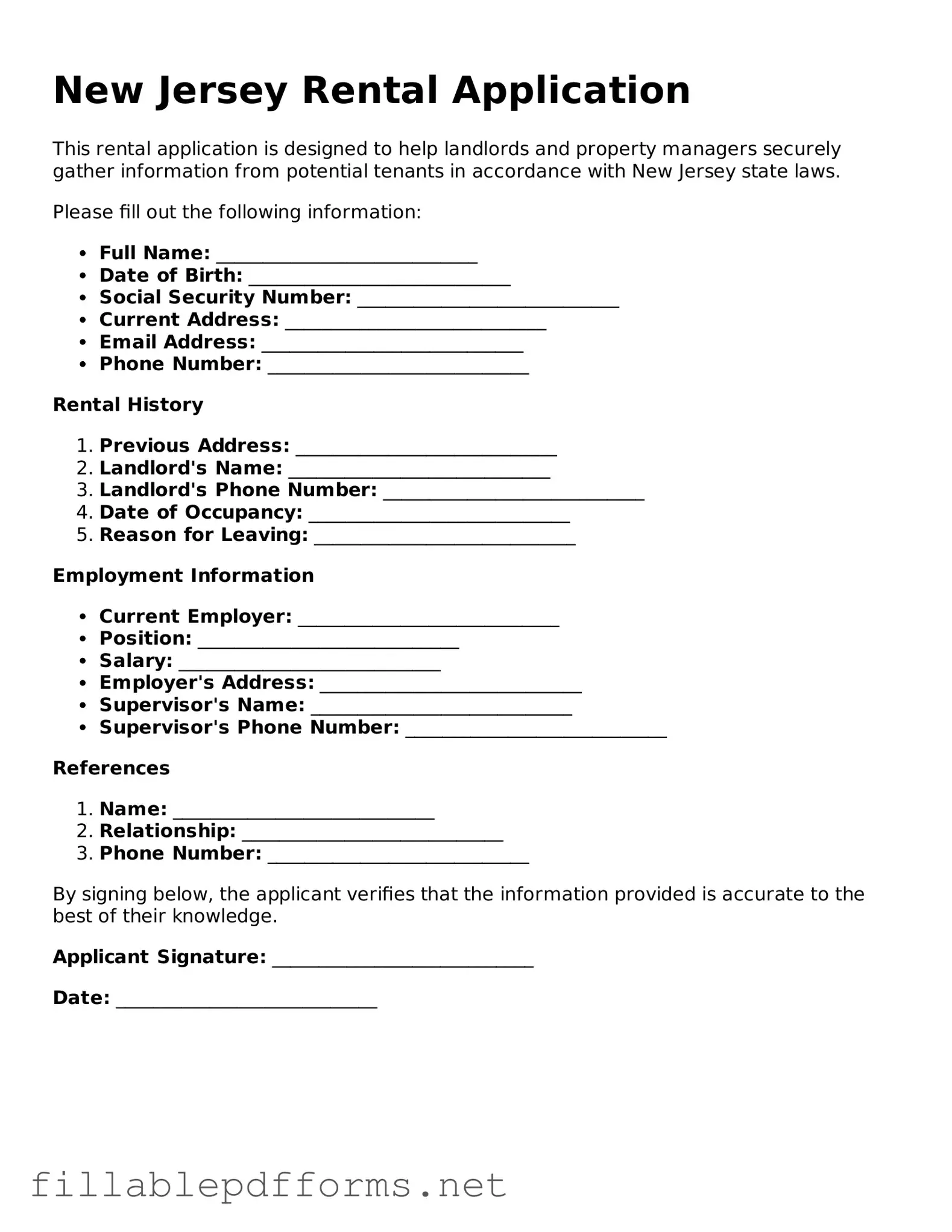Attorney-Verified Rental Application Form for New Jersey State
The New Jersey Rental Application form is a document used by landlords to gather essential information about prospective tenants. This form typically includes details such as employment history, rental history, and personal references. Completing the application accurately is crucial for both parties to ensure a smooth rental process.
Launch Editor Here

Attorney-Verified Rental Application Form for New Jersey State
Launch Editor Here

Launch Editor Here
or
▼ Rental Application PDF
Almost there — finish the form
Complete Rental Application online fast — no printing, no scanning.